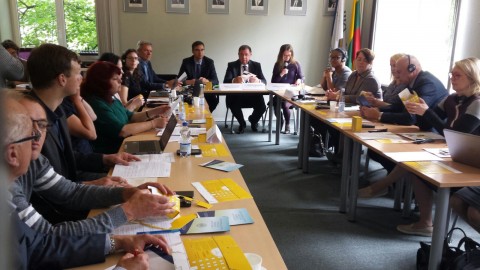
Lithuanian national initiatives are launching initiatives to support public buildings retrofitting. Those initiatives are welcomed by municipalities, however, mobilised resources are perceived as not sufficient for huge public building programmes renovation. Attraction of private investment remains a major challenge too.
These are among major outcome of CITYnvest roundtable took place in Vilnius on 13 June and gathering 26 representatives from municipalities. Participants exchanged on practices for financing energy efficiency in public buildings. This was the second meeting organised by CITYnvest in this focus country, in collaboration with the Association of Local Authorities in Lithuania (ALAL).
Lithuanian context
“The current set of regulation has been chosen as the previous financial support for refurbishment heavily subsidised was not efficient” said Ramūnas Šveikauskas from the ministry of Environment, when introducing the Lithuania national legislation. The current regulatory system calls on municipalities to submit projects (only pilots) for building renovation, making available 70€ Millionsl and ensuring project drafting reimbursement. The deadline for project application is 30 June.
Laura Pušinskaitė from the ministry of Energy added that “18% of EU Cohesion Fund for Energy Efficiency measurements has been allocated for modernization of streets and buildings” and that a fund of 79 Ml euros for Energy Service Company-ESCO model has been created, managed by the Public Investment Development Agency.
According to the ALAL Vice President, Chairman of the Committee on Energy and the Mayor of Elektrėnai, Kestutis Vaitukaitis, "Over the past few years, municipalities have accumulated a number of good practices in renovation of residential buildings. We hope to be able to update as soon as possible public buildings."
CITYnvest examples
Matured (RE:FIT from London, UK) or progressing (RenoWatt from Liège, Belgium) examples were provided on the use of public funding to establish centres of competences for supporting municipalities in building retrofitting. Key messages were the need to create standardised procedures, to bundle buildings, to reduce time in public procurement and the need to have political commitment in municipalities willing to proceed with public building retrofitting.


 Print HTML
Print HTML